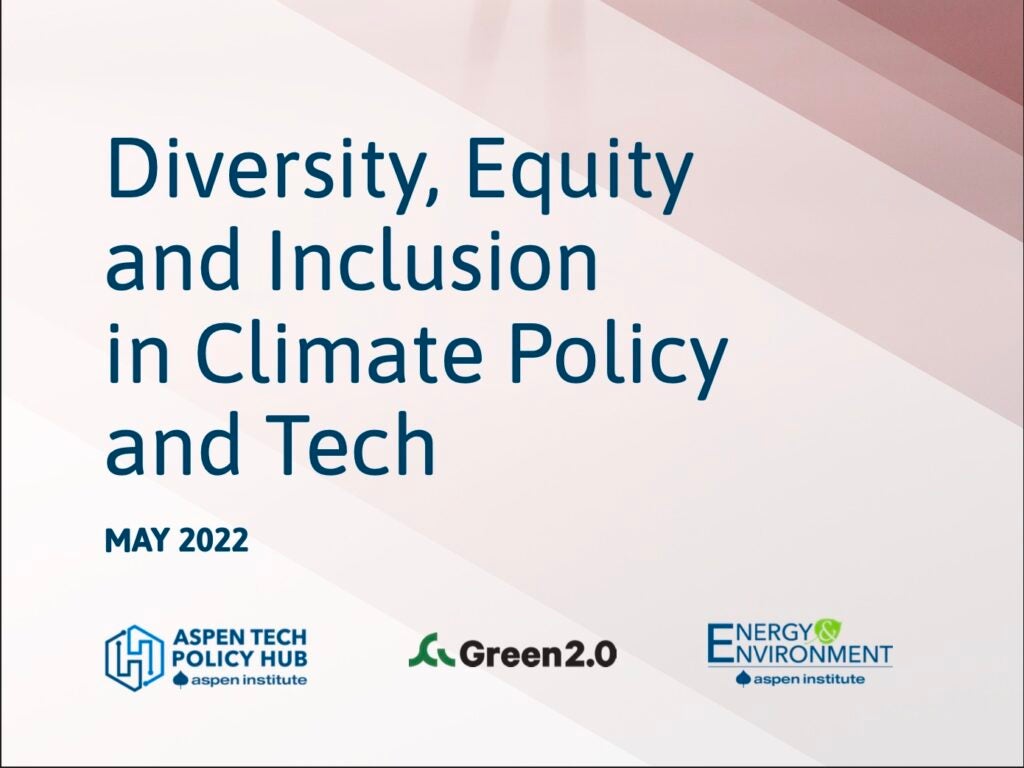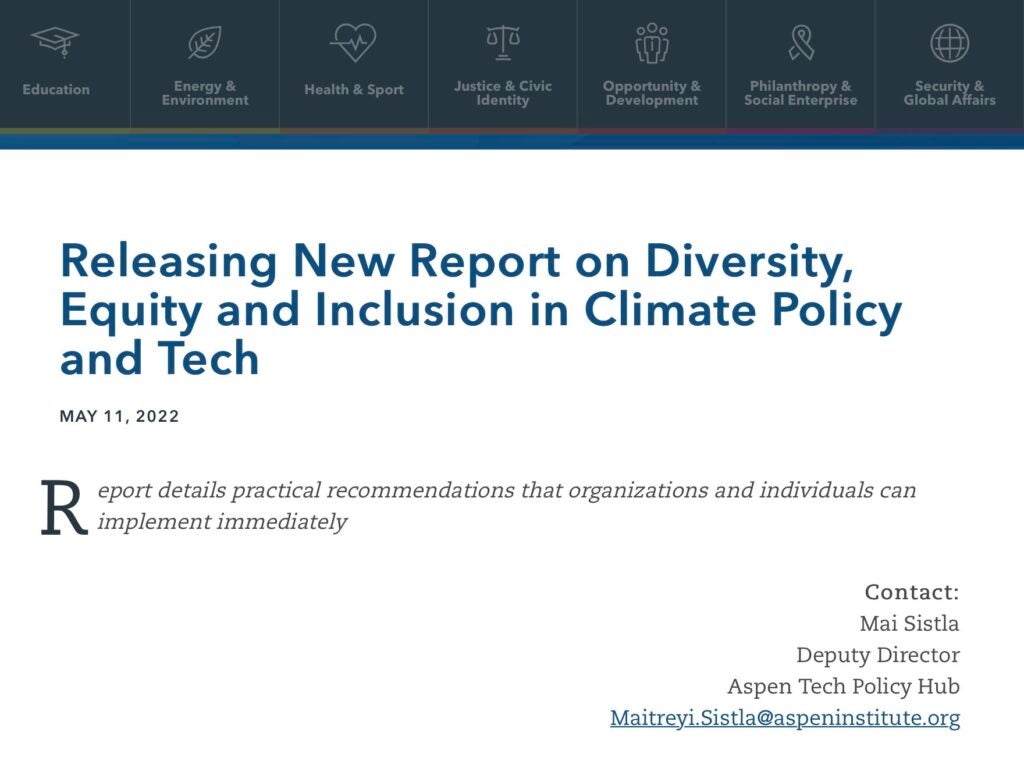
Diversity, Equity, and Inclusion in Climate Policy and Tech
by Aspen Tech Policy Hub Staff
The climate policy and climate tech spaces suffer from a stark lack of racial, ethnic, and gender diversity in the workforce. Sixty percent of climate policy and clean energy workers in the United States identify as non-Hispanic/Latino/a/x/e and White, while less than 30% of workers in the clean energy sector identify as women. Workers of color are much less likely to hold leadership positions in climate organizations. Moreover, there is a 26% gender wage gap in the solar industry. Despite progress made over the past few years in hiring more workers of color in environmental policy, disparities across race, ethnicity, and gender remain.
With our colleagues at the Aspen Institute Energy and Environment Program and in consultation with Green 2.0, we sought to put together a concrete, impact-oriented set of commitments around improving diversity, equity, and inclusion in climate policy and tech. In March 2022, we convened a multidisciplinary and intergenerational group of experts for a roundtable, mixing leading climate DEI professionals with representatives from affinity and other diverse groups and youth leaders. Over 30 attendees participated, representing nonprofits, academia, government agencies, and companies.
The below report details the recommendations that stemmed from this roundtable along the themes of ensuring leadership accountability, creating a culture of inclusivity and trust, hiring, strengthening the pipeline, and influencing funding institutions.



 Policy 101s
Policy 101s